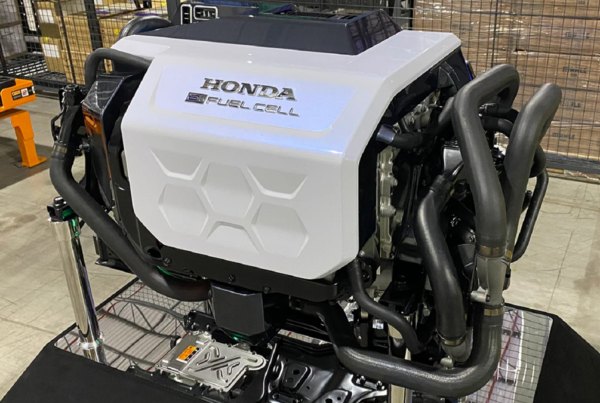
Meeting climate change targets will require the carbon intensity of our heat to be reduced by 90% from that of today. Not only will that require a massive change in the way we heat our homes and businesses, it has prompted an exciting debate about which technology is going to get us there – because with the existing sources (mainly condensing boilers and Combined Heat and Power) the UK isn’t going to get close.
There is one camp which believes in a switchover to hydrogen. This basically means piping hydrogen instead of methane down our existing gas pipes as we do now. Hydrogen which has been generated from water using low carbon electricity. Many of the existing pipes are good to use for this as the gas distributors have been switching to plastic for a while, replacing the old metal pipes some of which wouldn’t have worked. The rest of the kit doesn’t switch quite so easily, certainly existing boilers won’t run on pure hydrogen (hydrogen flames behave very differently to methane – they are colder and colourless so you don’t know your boiler’s on). Technology-wise its certainly possible, however the logistics are huge; once each section of network switches over, each customer is going to have to switch kit in their house at the same time. Such a change may also have to be forced on consumers – quite a challenge if you think about some of challenges of consumer engagement in the current smart meter programme!
The second group is pushing for a more electricity-led future, with extremely low carbon electricity being used to run heat pumps to provide heat. This is probably a more well- trodden path from a technology perspective. Heat pumps are already proving economical for off-gas grid properties, and commercially, with some subsidy from the government (Renewable Heat Incentive), work well. The key question here is whether the electricity grid could cope with the increase in demand… which would definitely be big, especially as it comes alongside the exponential rise in popularity of electric vehicles drawing from the same power source. Those lobbying for a hydrogen future often site this strain on the network as a key risk of the electrical future, whilst those pushing for electricity point towards the proven smart technology in supply and demand side balancing (turning stuff on and off at the best times!).
With many difficult decisions, often the solution lies in the middle… but in this case I am not so sure. A partial switch each way leaves a risk of a gas ‘zombie’ grid. As the number of users on the gas grid reduces the remaining users have to pay more for their share of the fairly constant maintenance costs… and in turn as users costs go up more flee… leaving the remaining to pay more. Similarly, a lack of decision on hydrogen makes it difficult to choose where to invest in supporting the electricity grids.
The technology choices we make now do make a difference to how a future heat source swap could be achieved. Local energy systems such as district heating can leave the door open to change as switching to hydrogen or heat pumps in one central plant room will be much easier than making a switch to thousands of properties, as would be required for hydrogen boilers in each property or heat pumps where no heat network was in place.
Wherever this goes one thing for sure is that it’s going to be challenging, although I think the technology bits may actually be the easiest to solve! How the consumer is taken on this journey is going to be incredibly important in determining success.
Discover how we can you develop a bespoke heating solution.
John Armstrong is Head of Operations for E.ON’s District Heating business in the UK, leading the team who maintain heating, cooling and hot water to over 30,000 residential and commercial customers. John’s experience includes city quarter solutions, power generation and engineering safety. He is a chartered Engineer and Fellow of the Institute of Mechanical Engineers.
Read the most up to date Fuel Cell and Hydrogen Industry news at FuelCellsWorks




